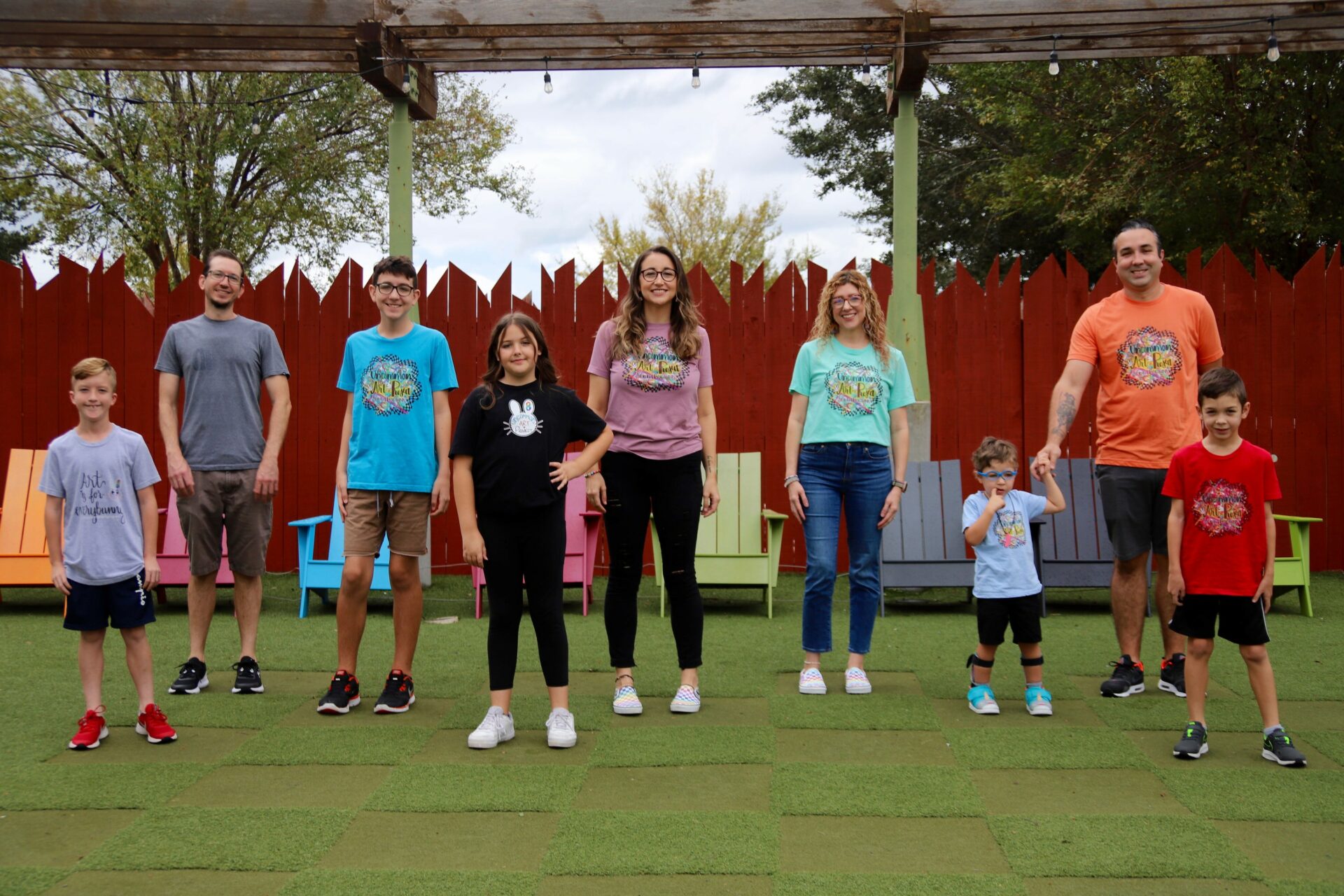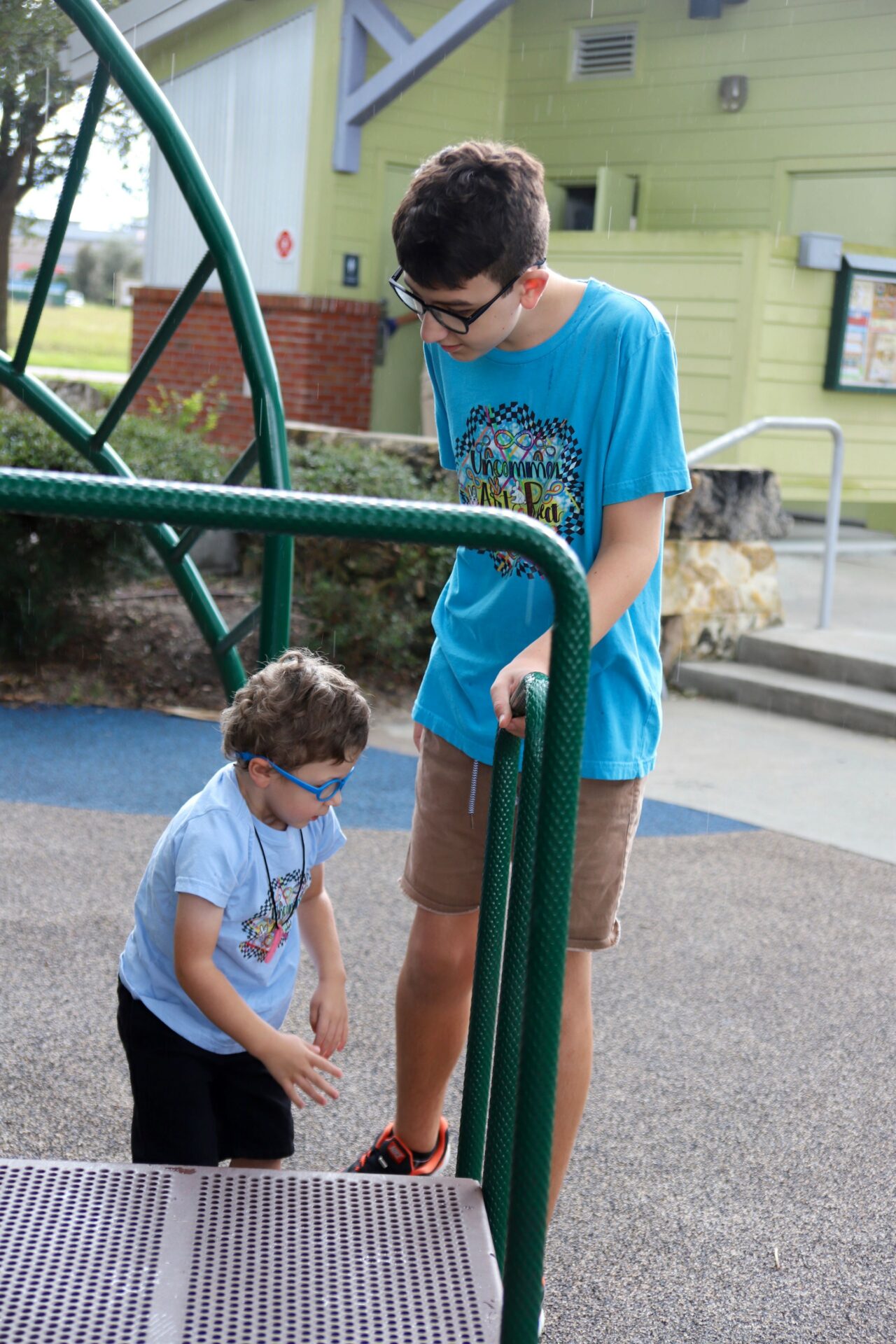We caught up with the brilliant and insightful Kristin Mattingly a few weeks ago and have shared our conversation below.
Kristin , thanks so much for taking the time to share your insights and lessons with us today. We’re particularly interested in hearing about how you became such a resilient person. Where do you get your resilience from?
Growing up I always knew I was different. I never knew why though, so I just kept struggling through. I didn’t know suffering wasn’t my only option. By my senior year of high school, the constant failure of academics and friendships threw me into a dark hole of depression. As I couldn’t figure out what was wrong with me, I developed a dangerous eating disorder that left me as a shell of a person with no soul. I had no idea what the future had in store for me. A few months after graduation, I was diagnosed with bulimia but didn’t realize the big deal others were making of it. I had no idea all the work I had ahead of me. After several failed attempts at recovery from multiple doctors, countless medications, outpatient therapy and working with a nutritionist, I was then admitted into the residential treatment inpatient program at The Renfrew Center- First in Eating Disorders. Still not seeing the big deal, not foreseeing that I would have to to drop out of my first year of college, I just wanted to feel better and go home.
This experience was harder than anything I’d ever done. The process began to get intense. People were constantly monitoring us and I felt trapped. Finally, at a therapy session, I couldn’t focus and honestly I was thinking of my next binge and purge episode without being caught, when the psychiatrist asked me if I’d never been diagnosed with ADHD. The question caught me off guard. Within the next few weeks at the facility, numerous tests started happening. All of a sudden, I was diagnosed with ADHD – combined. The next morning, as I approached the nurses station, my little cup of meds had a new pill. The nurse assured me it was ok and to proceed. After that, my whole life made a little bit more sense.
To me all the therapies had seemed boring until I walked into the art studio. At art therapy I fell in love, as the therapist explained what to do. The directions were… fun? This didn’t make sense, as I never was taught art. I grew up dancing, singing and playing in the band – I didn’t know how to do art. Art therapy was the first time I was able to communicate my feelings in a way that someone else could understand.
After 30 days of inpatient treatment, for the first time I felt on my way to be being an adult, a regular person. It was as though I was just learning how to be a functional human. At The Renfrew Center, I learned that my bulimia wasn’t the problem, finding out my underlying issue was the reason why I was able to finally achieve the healing I needed. My why was starting to make sense.
As I went back to school, I was able to complete my bachelor’s degree in humanities at UCF. Even now, as a neurodivergent mother with having neurodivergent children, there are still challenges I face in a neurotypical world but I’ve learned coping strategies that help me to thrive instead of just survive.
Thanks, so before we move on maybe you can share a bit more about yourself?
My best friend Alexx and I had always dreamed throughout our 15 years of friendship that it would be so cool if we had a business that focused on our eclectic art style, but we didn’t know where to even begin. During the pandemic, as we both were doing our own art and art with our kids, we had our epiphany! Since we both live with anxiety disorders and ADHD, this was the perfect way to show the world how important art is. Art is something that helps us communicate with one another and calm ourselves. We each have an autistic son and all of our children have a variety of sensory challenges. We have 5 children between our two families and each one has a special, individual love for bunnies, so naturally our motto is “Art is for everybunny!” Because no matter what your challenges are in life, art brings us all together. As our children grow, we want to provide them the opportunity to show their language of creativity and create a future for themselves while raising awareness and acceptance for all neurodiversities.
Looking back, what do you think were the three qualities, skills, or areas of knowledge that were most impactful in your journey? What advice do you have for folks who are early in their journey in terms of how they can best develop or improve on these?
Looking back in my journey, the most important things I learned was perseverance, critical thinking and communication. My journey to be healthy was constantly working through the unknown and difficult circumstances that were thrown at me. I always considered myself to be an out-of-the-box thinker, but in humanities and philosophy you are constantly being challenged on what you think you know and forced to look at things differently. We are taught what it means to be human, and to use our own personal experiences to learn, identify, question, solve and appreciate numerous studies. No matter where anyone is from or what they have been taught, everyone is dealing with the human experience in their own way whether they realize it or not. Since I struggled significantly with communication, I didn’t realize I had always been able to communicate in a different way than most people. Once I started art therapy, I realized that I had used doodling to learn academic subjects, as that was my way of note taking. That’s when I learned that no matter who we are, one of the major challenges we all have is communicating with one another. We must seek to understand one another, even if the communication style isn’t what comes naturally to you. The advice I have for people that are early in their journey is to keep trying to find a mental health program that works for you and can empathize with your healing journey.
What do you do when you feel overwhelmed? Any advice or strategies?
As someone who has lived with anxiety most of my life, I’ve created a plan for when I’m overwhelmed. To most people, it may seem silly, but for those that have mental health disorders such as myself, it’s a necessity. The most important thing I’ve learned is that when you are starting to feel overwhelmed, let yourself feel the emotions and process them, instead of stuffing them down. The first thing I do is to stop what I’m doing, and start doing breathing exercises. If that is stressful, just start by taking a few deep breaths. Next, whether you realize it or not, you are probably dehydrated, so take few sips of water. I then roll on an essential oil blend for anxiety to help myself feel grounded. I actually make the blends and have given them to friends and family so everyone can create a calm atmosphere.
If I’m with someone, I let them know that I’m feeling anxious and I just want them to know so I don’t feel alone. If I’m by myself, I’ll text or call someone, just to take my mind off those negative thoughts. Also, chew gum, take a mint or candy to relieve the uncomfortable sensations. Finally, write all your thoughts down. I call this a brain dump so I can visually see everything and organize it based on what is actually important at the time versus what I’m dwelling on that isn’t necessary at the moment.
Contact Info:
- Website: www.uncommonartproject.com
- Instagram: @uncommonartproject
- Facebook: Uncommon Art Project
- Other: linktr.ee/uncommonartproject












